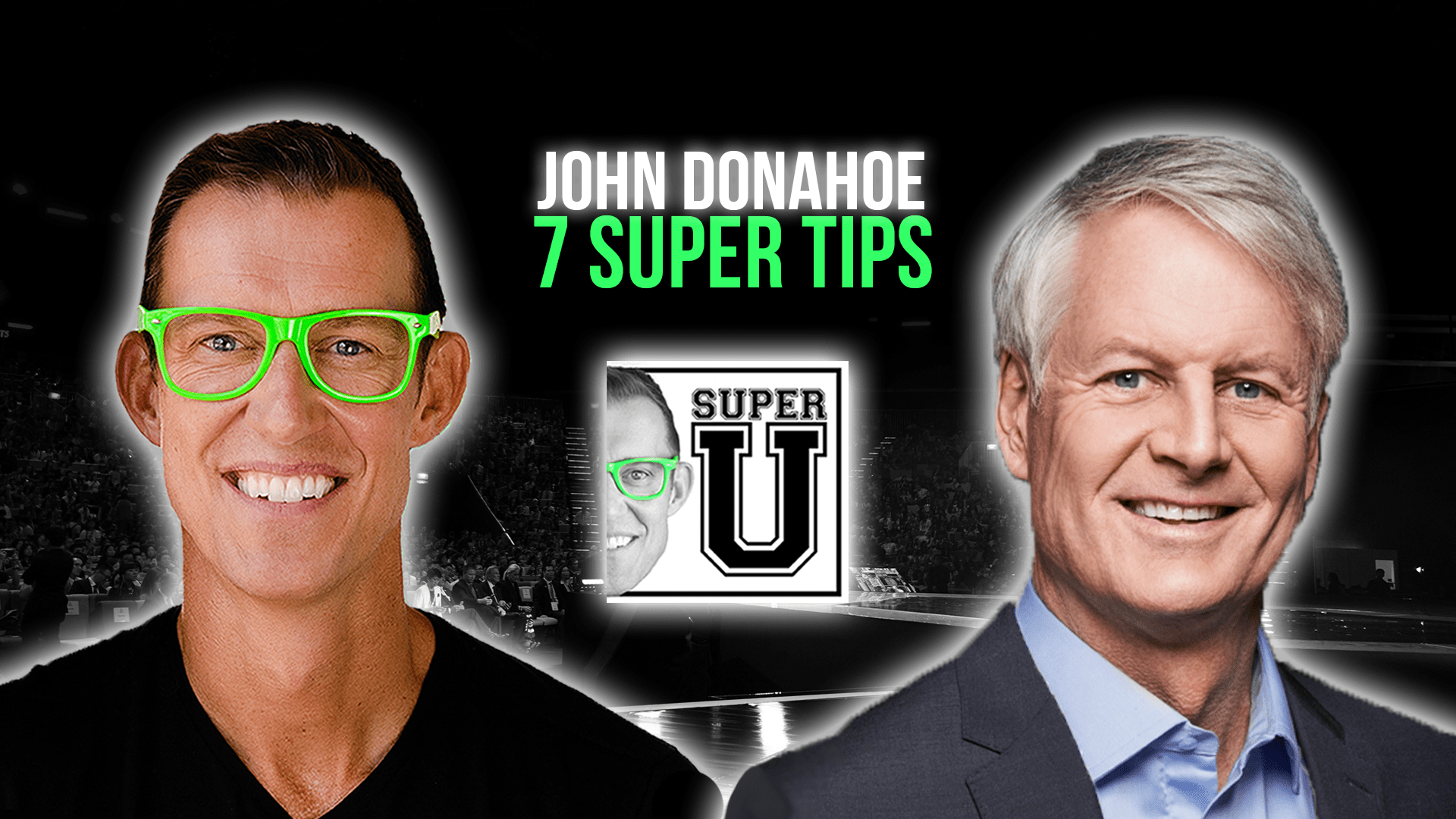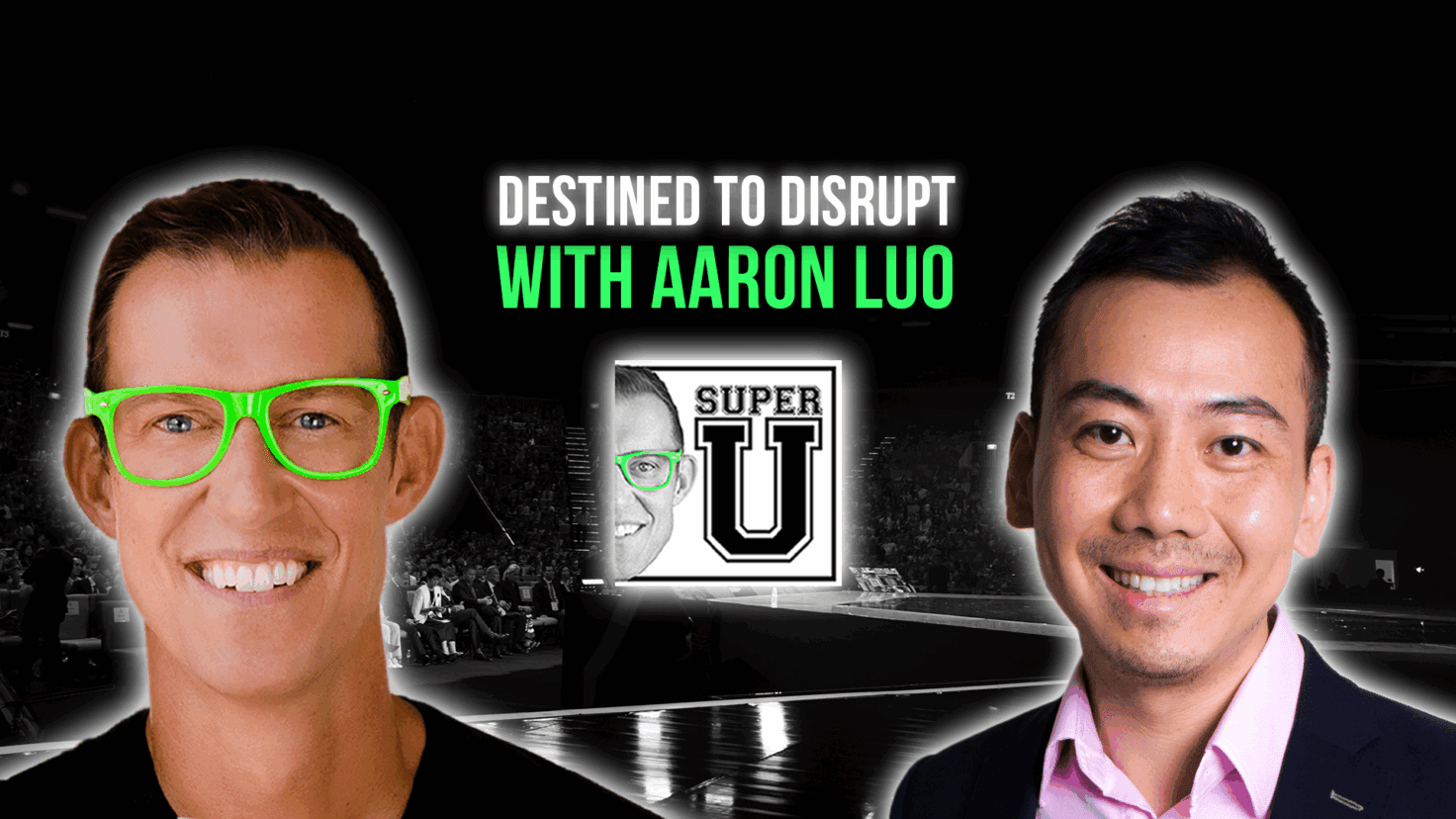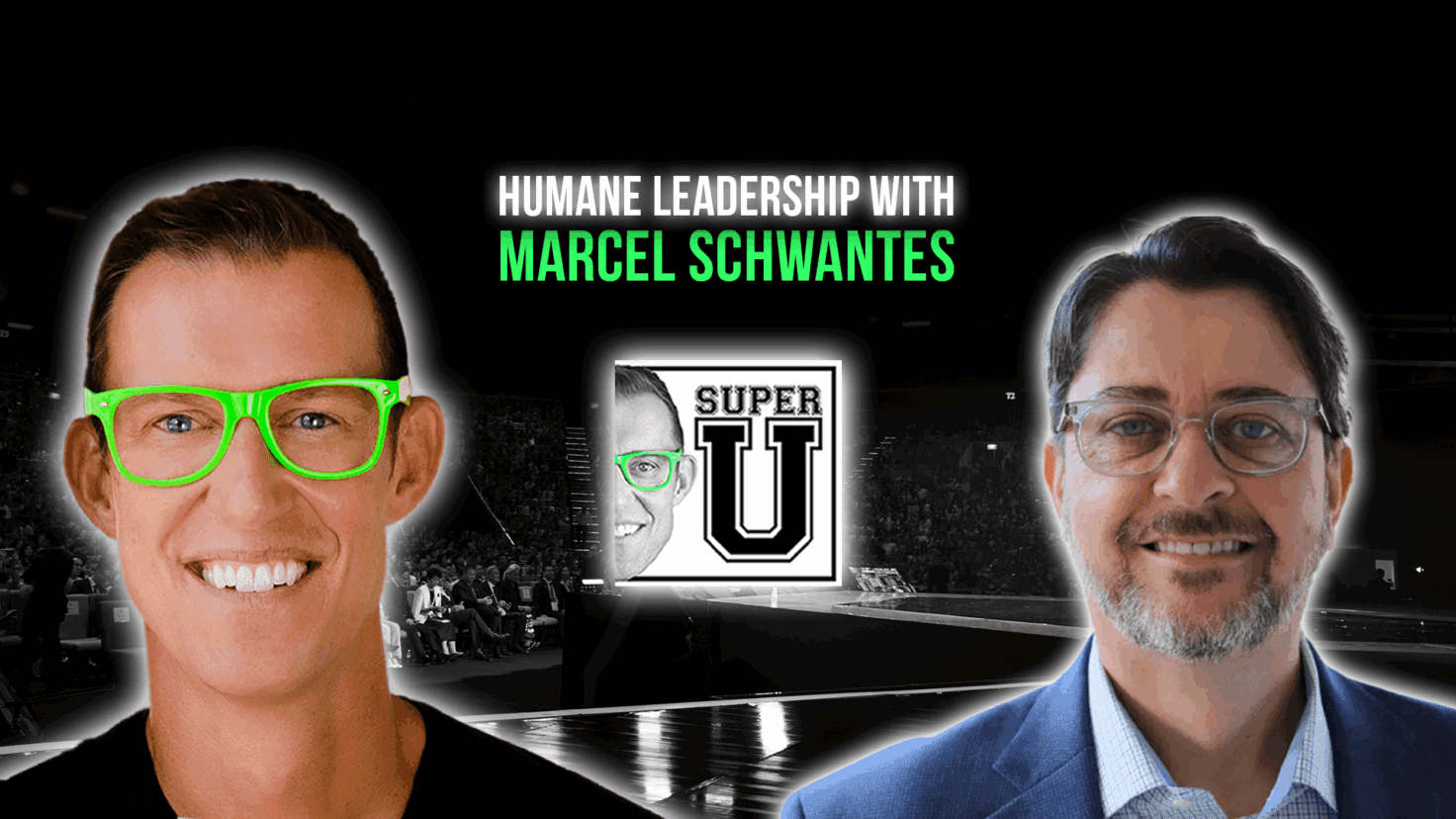Super U Podcast | 7 Super Tips with John Donahoe
Just Do It! That’s right, today we’re sharing 7 super tips from the CEO of Nike, John Donahoe. Erik and Donahoe discuss diversity within teams, the development rate as a CEO, investing in yourself, sticking to your intentional path, and much more. All of us at Equalman Studios would like to wish you and your family the happiest of holidays. Thank you for all of your support.
Just Do It. Today, we’re sharing 7 super tips from the CEO of Nike, John Donahoe, including 3 questions one should ask every day. Erik and Donahoe discuss diversity within teams, the development rate as a CEO, investing in yourself, sticking to your intentional path, and much more. All of us at Equalman Studios would like to wish you and your family happy holidays.
5x #1 Bestselling Author and Motivational Speaker Erik Qualman has performed in over 55 countries and reached over 50 million people this past decade. He was voted the 2nd Most Likable Author in the World behind Harry Potter’s J.K. Rowling. Qualman is also the inventor of the bestselling board game Kittycorn.
Need a sneak peek? Below are the main takeaways from the episode.
Super U Podcast | 7 Super Tips with John Donahoe | 3 Questions to Ask Every Day
[7:07] Tip #1
“I always try to ask myself, there’s kind of why, what, and how? The why, question. There are why questions are what questions how, why questions are why are we here? Right? Why are we on this team? That’s like purpose. And I think it’s always important to get a team to get aligned around why are we here. And do you see some pretty strong commonalities around them? Right different even if you have different personalities, backgrounds, different, even beliefs. So what should happen? Get commonality on the why we’re here to win a championship, or we’re here to make our purpose come to life. We’re here and share that. And then that’s, again, that human connection I talked about earlier. The what is our strategy, right? What’s our goal? And what are our plays or strategies to get it done? And you can have debates around those. But and by the way, strategies change based on the circumstance, right, based on the time horizon of competition, or whatever. And so and so, and you could have different points of view on the what. But once we agree to the play, we’re going to run we run it the how, and its culture, that’s the hardest part. It’s how are we going to behave with one another, we may be aligned on why we’re here and our purpose, and we may be more or less agree on our strategy or our direction. But how are we going to make that strategy come to life? How are we going to behave with one another? And that’s culture?”
[8:59] Tip #2
“You know, one of the things I learned early in my career read at Bain, always be outside in because I was never part of a client organization. I had to understand things, through the eyes of the customer, through the eyes of competitors, through the eyes of other stakeholders, and those are the cues of where the pucks going. The puck is made up inside a company, the puck, the puck is defined by where the consumer is going and wants to go, where competitors or disruptors are coming up and giving different offerings, and what’s happening overall so staying keeping a real outside in mindset is I think essential. It’s also, to be honest, it’s what allowed me to come into four different companies or I guess I grew up in one and then come into three different companies. And I was not I’ve never been an expert in what on day one that’s forced me to have a rich and sharp understanding of how the consumer thinking about us.”
[10:18] Tip #3
“There’s clear data and evidence now diverse and inclusive teams are more successful and more innovative. bringing different perspectives, different backgrounds, different combinations, different personalities, different skill sets, and different cultures, melding together, that produces better outcomes, that produces better outcomes for a sports team. You know, the bowls didn’t have five centers, they didn’t even have five, Michael Jordan’s have would have been fun to watch five, Michael Jordan’s, but my guess is five, Michael Jordan might not have done any better than having one amazing Michael Jordan and surrounding him with incredible complementary skill sets. I also think that’s true in a business context. And so the diversity and inclusion is not just a nice thing to do, because it happens to be, you know, in vogue at the moment, it’s the best way to win. Yeah, I would argue it’s the only way to win sustainably. So you’ve got to, you got to start with that deep belief. And it’s, it’s funny because sports can teach us so much. We know that on the sports field. Right? You know, you want to have a great point guard, and you want to have a great number two guard, you got to have a good, you got to have a good outside shooter, you got to have someone that can rebound inside. And they have to appreciate each other, and they have to play together and come together. Yeah, that to me is diversity and inclusion. And so inside, whether it’s inside a Nike, our commitment to be a diverse and inclusive culture because it’s the best way to win.”
[12:15] Tip #4
“The thing about being in the number one role, and the thing of particular about being a founder, is you’re in the frying pan every moment. And you’re being forced to grow and scale learn. And the pattern sets and things you are privy to whether it’s a board meeting, whether it’s dealing with other founders, whether it’s dealing with a situation could see all parts of the business. And so your growth curve is like this, often, the growth curve, your direct reports of people beneath you aren’t, will never be as high. Because they’re not in that role. And so accepting that, because at some point, you’re developing faster than your people. And that’s a hard thing, especially when you had that initial founding group or that initial. But you’re learning and growing, you don’t feel the learning growth, you’re just like you’re feeling as inadequate as the next guy.”
[13:29] Tip #5
“in my career, I went to a talk by a guy named Jim, Jim Lehrer. And he talked about the concept of the business athlete. And he said the same question I just asked you. He said, You know what’s so interesting when you look at world-class athletes, they want to perform, they’re on the playing field, and they want to perform at the highest levels. And for every hour, they’re on the playing field, they prepare for 10 to 20 hours. And they invest in themselves. They don’t assume they’re going to be to walk out and perform on a World Class Stage with no preparation, they invest in their bodies, they invest in their minds, invest in their skills, they invest in their weaknesses, and they take preparing themselves really seriously. And they view that as a sign of strength, not a weakness. The narrative about business is whether you’re a CEO or an entrepreneur, or a great investor, oh, we just work all the time. We don’t really sleep or eat. Anyone who got a coach, or God help you a therapist, that’d be a sign of weakness. You never show your weakness. It’s all strength. And that somehow we just assume we’re just going to be able to jump on the playing field, a world-class playing field just perform. And then she said this to me, I was a young consultant at Bain at the time. I thought this makes a lot of sense. That actually the narrative of investing in yourself investing in all parts Are to yourself if you want to have a full life made sense.”
[15:40] Tip #6
“For you, entrepreneurs, you’re in a world that’s magnifying everything that doesn’t matter. Right? in TechCrunch, you’re a hero, or you’re a zero, you’re never in between we magnify the crap out of things when they’re going well. And then we pound things when they’re not going well. And as a leader, especially an entrepreneur, if you get influenced by that it’s like buffeting winds that are impossible to deal with. And the reality is, you’re never half as good as they say you were on your good days and never half as bad as on your bad days. And so the importance of spending that time is, as you’ve said, and have taught so beautifully of quieting your mind of understanding, what is my intention? What, what regardless of what the winds are going to do today, regardless of what the winds are going to do in the next month, in the next year. What’s the course that I want to set for myself? And I just think and by the way, over time, no one remembers the short-term tax, no one remembers what they wrote one day or another how good or bad they remember, they remember the journey, you’ve led the remember the consistency with which you’ve led your life you’ve you lead your companies you’ve created. And so it’s hard work.”
[17:31] Tip #7
“You know, life is hard. Leadership is hard. Being part of great companies and teams, like Pay Pal and Nike are hard. But opening our hearts to adversity and opening our hearts to the challenges and acknowledging that’s part of the process is just one of the learnings. You know, along the way, I hate adversity. I want everything to go well I like Don’t you know, but it’s so funny because when I look back at my life, the moments that have had the most purpose and meaning for me, I’m most proud of in hindsight, professionally and personally, were almost always periods of adversity. And so and so when now when I’m in adversity, and this has been a lot less three months, I just remind myself, now’s the time where if I show up every day as a whole person, as open, vulnerable and honest. I’ll look back and be proud, right may not feel good each given day. But I’ll be proud.”
Click here to subscribe and listen to the full episode.

To ensure you don’t miss future episodes, subscribe to our podcast by clicking here >> Super U Podcast. We hope these tips help unlock and unleash your inner superpower!
The Super U Podcast is hosted by #1 bestselling author and Motivational Speaker Erik Qualman.





